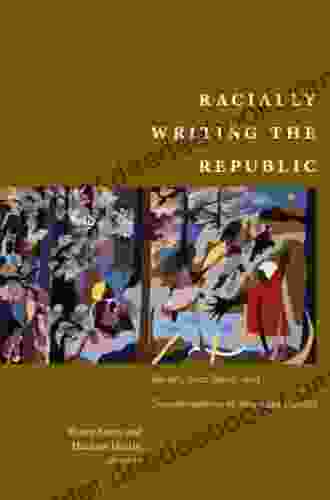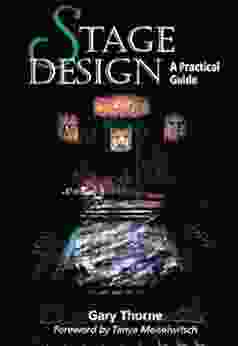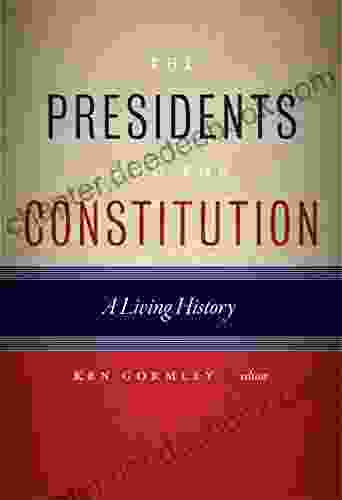Racializing the Republic: The History and Legacy of Racial Essentialism in the United States

4.6 out of 5
| Language | : | English |
| File size | : | 2015 KB |
| Text-to-Speech | : | Enabled |
| Screen Reader | : | Supported |
| Enhanced typesetting | : | Enabled |
| Word Wise | : | Enabled |
| Print length | : | 344 pages |
The concept of race is a social construct that has been used to justify and perpetuate inequality and oppression for centuries. In the United States, the idea of racial essentialism—the belief that race is a biological reality that determines one's character, intelligence, and morality—has been a powerful force shaping our history and society.
The Origins of Racial Essentialism
The roots of racial essentialism can be traced back to the 16th century, when European explorers began to encounter people from Africa, Asia, and the Americas who were different from themselves. These encounters led to the development of a racial hierarchy, with Europeans at the top and non-Europeans at the bottom. This hierarchy was based on the belief that Europeans were inherently superior to other races.
The idea of racial essentialism was further developed during the Enlightenment, when scientists began to classify humans into different races based on physical characteristics such as skin color, hair texture, and facial features. This classification system was used to justify the enslavement of Africans and the colonization of non-European lands.
Racial Essentialism in the United States
Racial essentialism played a major role in the development of the United States. The Founding Fathers believed that the differences between races were natural and that African Americans were inferior to white Americans. This belief was used to justify the institution of slavery and the denial of basic rights to African Americans.
After the Civil War, racial essentialism continued to be used to justify the segregation of African Americans and other minorities. The Jim Crow system of segregation was based on the belief that blacks and whites were inherently different and could not live together in harmony. This system of segregation lasted for nearly a century and had a devastating impact on the lives of African Americans.
The Civil Rights Movement and the Challenge to Racial Essentialism
The Civil Rights Movement of the 1950s and 1960s challenged the idea of racial essentialism. Civil rights leaders such as Martin Luther King, Jr., argued that race was a social construct and that all people were created equal. The Civil Rights Act of 1964 and the Voting Rights Act of 1965 were major victories for the Civil Rights Movement and helped to dismantle the system of Jim Crow segregation.
The Legacy of Racial Essentialism
Despite the progress made by the Civil Rights Movement, racial essentialism continues to be a force in American society. The belief that race is a biological reality that determines one's character and intelligence is still widespread. This belief has been used to justify racial profiling, mass incarceration, and other forms of discrimination.
The legacy of racial essentialism is also evident in the way that we talk about race and identity. We often use racial categories to describe people and make assumptions about their character and abilities based on their race. This can lead to stereotyping and discrimination.
The concept of racial essentialism has had a profound impact on the history and society of the United States. It has been used to justify slavery, segregation, and other forms of discrimination. While the Civil Rights Movement made significant progress in challenging racial essentialism, it remains a force in our society today. It is important to be aware of the history and legacy of racial essentialism and to challenge the assumptions that we make about people based on their race.
We must work to create a more just and equitable society, one that is free from the legacy of racial essentialism.
4.6 out of 5
| Language | : | English |
| File size | : | 2015 KB |
| Text-to-Speech | : | Enabled |
| Screen Reader | : | Supported |
| Enhanced typesetting | : | Enabled |
| Word Wise | : | Enabled |
| Print length | : | 344 pages |
Do you want to contribute by writing guest posts on this blog?
Please contact us and send us a resume of previous articles that you have written.
 Page
Page Text
Text Story
Story Library
Library E-book
E-book Newspaper
Newspaper Sentence
Sentence Bookmark
Bookmark Shelf
Shelf Glossary
Glossary Bibliography
Bibliography Preface
Preface Synopsis
Synopsis Footnote
Footnote Manuscript
Manuscript Codex
Codex Tome
Tome Bestseller
Bestseller Classics
Classics Biography
Biography Autobiography
Autobiography Encyclopedia
Encyclopedia Thesaurus
Thesaurus Character
Character Card Catalog
Card Catalog Borrowing
Borrowing Stacks
Stacks Periodicals
Periodicals Journals
Journals Reading Room
Reading Room Rare Books
Rare Books Interlibrary
Interlibrary Literacy
Literacy Study Group
Study Group Thesis
Thesis Dissertation
Dissertation Storytelling
Storytelling Awards
Awards Book Club
Book Club Textbooks
Textbooks Juby Aleyas Koll
Juby Aleyas Koll Yoko Hatta
Yoko Hatta Charlene Tess
Charlene Tess Paul Holland
Paul Holland Peter Leek
Peter Leek Mrsxnomore
Mrsxnomore Evgeny Sergeev
Evgeny Sergeev The Beatles
The Beatles Joe Biel
Joe Biel John Oller
John Oller Faustine
Faustine Stephan Anderson
Stephan Anderson Valerie Martin
Valerie Martin Daniel Medina
Daniel Medina Paul Merry
Paul Merry Jamison Roberts
Jamison Roberts Lisa Morgan
Lisa Morgan Mike Smith
Mike Smith Stephen Colegrove
Stephen Colegrove Kindle Edition
Kindle Edition
Light bulbAdvertise smarter! Our strategic ad space ensures maximum exposure. Reserve your spot today!

 Harrison BlairHow to Generate an Unlimited Number of Leads in Your Business: Real, Fast...
Harrison BlairHow to Generate an Unlimited Number of Leads in Your Business: Real, Fast...
 Banana YoshimotoThe Top Notch Secrets Of Gaining Admission Into Nigerian Defense Academy...
Banana YoshimotoThe Top Notch Secrets Of Gaining Admission Into Nigerian Defense Academy... Ivan CoxFollow ·18.2k
Ivan CoxFollow ·18.2k Darnell MitchellFollow ·13.5k
Darnell MitchellFollow ·13.5k Colin RichardsonFollow ·18.3k
Colin RichardsonFollow ·18.3k Brandon CoxFollow ·14.1k
Brandon CoxFollow ·14.1k Chris ColemanFollow ·17.9k
Chris ColemanFollow ·17.9k Tom ClancyFollow ·6.3k
Tom ClancyFollow ·6.3k Richard SimmonsFollow ·19.5k
Richard SimmonsFollow ·19.5k Gene PowellFollow ·11.7k
Gene PowellFollow ·11.7k

 F. Scott Fitzgerald
F. Scott FitzgeraldRobot Buddies: Search For Snowbot
In the realm of...

 Mario Vargas Llosa
Mario Vargas LlosaUnlocking Academic Success: A Comprehensive Guide to...
In the ever-challenging academic...

 Gabriel Blair
Gabriel BlairMake $000 Per Month Selling Your YouTube Freelancing...
Are you looking for a...
4.6 out of 5
| Language | : | English |
| File size | : | 2015 KB |
| Text-to-Speech | : | Enabled |
| Screen Reader | : | Supported |
| Enhanced typesetting | : | Enabled |
| Word Wise | : | Enabled |
| Print length | : | 344 pages |














